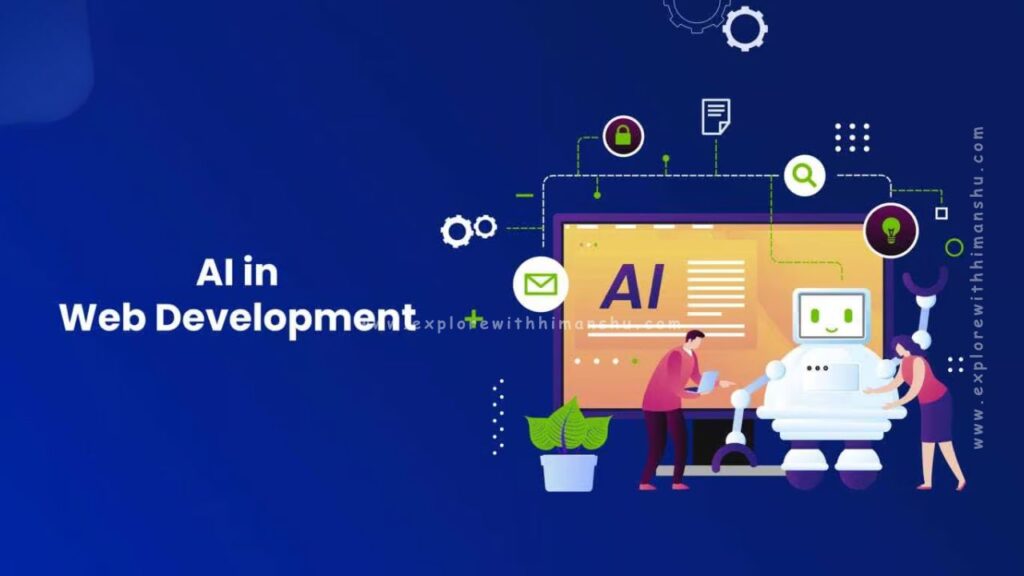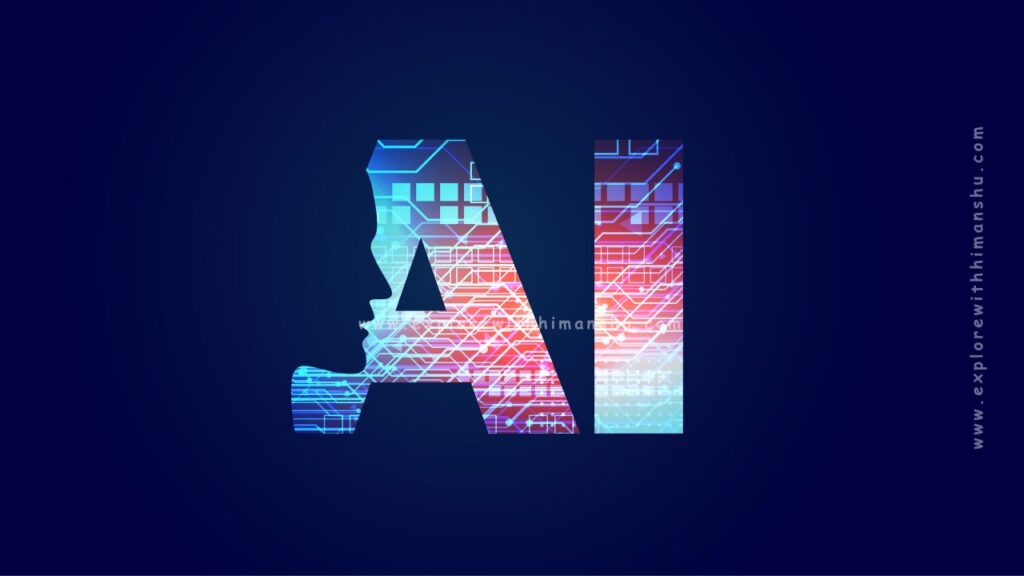Introduction:-
Artificial Intelligence (AI) is revolutionizing each enterprise, and net improvement is no exception. AI-powered tools, automation, and machine mastering fashions are making internet development faster, smarter, and extra green. In this in-intensity guide, we can explore how AI is shaping the destiny of web improvement, its applications, blessings, demanding situations, and real-world case studies.
Discover how AI is revolutionizing web development in 2025 and beyond. Explore AI-driven website builders, automation, UX/UI design, SEO, and security with real-world case studies. Stay ahead in the digital landscape
Despite its numerous blessings, integrating AI into web improvement additionally provides certain demanding situations, together with moral worries, protection dangers, and capability task displacement. However, as AI continues to conform, developers and agencies have to adapt to those modifications and leverage AI technologies to live ahead in the aggressive virtual marketplace.
In this in-depth guide, we will explore how AI is shaping the future of web development, its applications, benefits, challenges, and real-world case studies that highlight its impact on the industry.

1. The Evolution of AI in Web Development
1.1 Early Days of AI in Web Development
AI in web development started with simple automation tools like chatbots and basic website builders. Early AI-assisted web design platforms like Wix ADI and The Grid introduced automated website creation, but these were limited in functionality.
1.2 Rise of AI-Driven Web Development
With the advancement of deep learning, NLP (Natural Language Processing), and computer vision, AI has progressed significantly in web development. Modern AI systems can:
- Generate website code
- Optimize user experience (UX)
- Automate SEO tasks
- Personalize content dynamically
The Future of Personal Development: 2025 Trends and Strategies for Growth
2. How AI is Changing Web Development
2.1 AI-Powered Website Builders
Tools like Wix ADI, Bookmark AiDA, and Zyro use AI to generate websites based on user input. They analyze industry trends, user preferences, and design principles to create customized layouts instantly.
2.2 AI in Code Generation
AI-powered code assistants like GitHub Copilot, Tabnine, and OpenAI Codex help developers write code faster by predicting and suggesting entire blocks of code based on context.
2.3 AI for UX/UI Design
AI tools like Uizard, Adobe Sensei, and Figma AI assist in creating wireframes, layouts, and even complete UI designs by analyzing user behavior and industry trends.
2.4 AI for Automated Testing
AI-based testing tools like Selenium AI, Testim.io, and Applitools enhance software testing by:
- Detecting bugs automatically
- Performing visual regression testing
- Predicting potential failures
2.5 AI-Driven Chatbots & Virtual Assistants
AI chatbots like ChatGPT, Drift, and Intercom offer real-time customer support, improving user engagement and automating responses based on NLP.
2.6 AI for SEO Optimization
AI-based SEO tools like SurferSEO, Clearscope, and RankBrain optimize content based on real-time search trends and user intent.

3. Benefits of AI in Web Development
- Speed & Efficiency: AI-powered automation reduces development time by handling repetitive tasks.
- Improved UX & Personalization: AI analyzes user behavior to deliver personalized content and recommendations.
- Cost Reduction: Businesses save money by reducing human intervention in design, coding, and testing.
- Better Security: AI can detect and prevent cyber threats using advanced anomaly detection techniques.
- Enhanced SEO & Performance: AI optimizes websites for search engines in real-time.
4. Challenges & Limitations of AI in Web Development
4.1 Ethical Concerns
- Data privacy issues
- AI bias in decision-making
4.2 Limited Creativity
AI lacks human creativity and intuition, making it less effective in highly innovative projects.
4.3 Dependence on AI
Over-reliance on AI tools can lead to skill degradation among developers.
4.4 Initial Costs & Learning Curve
Adopting AI-driven development requires investment in new tools and learning new methodologies.
5. Case Studies: AI in Real-World Web Development
Case Study 1: AI in E-commerce (Shopify & AI Personalization)
Challenge: Enhancing user experience and increasing sales. Solution: Shopify uses AI-driven recommendation engines to analyze user behavior and offer personalized product suggestions. Outcome: Increased conversion rates and customer satisfaction.
Case Study 2: AI-Powered News Websites (The Washington Post’s Heliograf)
Challenge: Automating news article generation. Solution: The Washington Post developed Heliograf, an AI-driven tool that generates news articles for minor events and sports updates. Outcome: Faster news coverage with minimal human intervention.
Case Study 3: AI in Web Security (Cloudflare & AI-Driven Threat Detection)
Challenge: Detecting and preventing cyber threats. Solution: Cloudflare uses AI-powered security systems to monitor web traffic, detect unusual behavior, and prevent attacks. Outcome: Enhanced website security and reduced risk of data breaches.

6. The Future of AI in Web Development
6.1 AI-Generated Code & No-Code Platforms
Future AI models will enable fully AI-generated code, reducing the need for manual programming and making web development more accessible to non-developers.
6.2 AI-Driven Voice & Gesture-Based Web Interfaces
As voice assistants and AR/VR technologies evolve, websites will integrate voice commands and gesture-based interactions for seamless navigation.
6.3 AI-Powered Hyper-Personalization
Websites will deliver real-time, hyper-personalized content based on user emotions, facial expressions, and behavior patterns.
6.4 AI-Enhanced Cybersecurity
Future AI security systems will use predictive analytics to identify vulnerabilities before attacks occur.
Conclusion
AI is revolutionizing web development by making it faster, smarter, and more efficient. While challenges exist, the benefits of AI-driven development far outweigh the risks. Businesses and developers must embrace AI-driven tools to stay ahead in the competitive digital landscape.
In addition to enhancing performance, AI allows web applications to end up more intuitive and customized. Advanced AI algorithms examine consumer behavior and choices to deliver a tailor-made surfing experience, boosting user satisfaction and engagement. AI-pushed predictive analytics also permit agencies to count on consumer needs, presenting a competitive aspect in an more and more digital international.
Moreover, AI has played a critical function in improving search engine optimization and virtual advertising techniques. AI-based equipment can examine large datasets, endorse applicable key phrases, optimize on-web page elements, and provide insights into search engine scores. This functionality lets in organizations to refine their content material strategy and improve visibility in search outcomes.
As AI continues to evolve, web development will become more automated, secure, and personalized, paving the way for innovative digital experiences.
Are you ready to integrate AI into your web development projects? Explore AI-powered tools and stay ahead of the competition!
Let us know your thoughts on how AI is transforming web development in the comments below.


